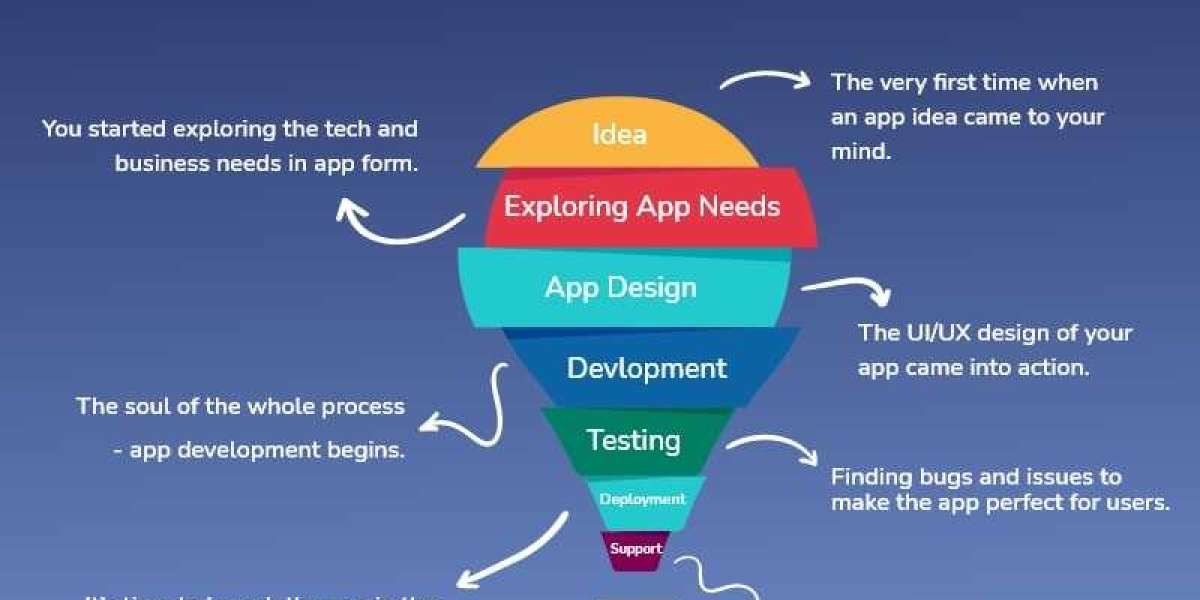Navigating the Mobile App Development Market: Trends, Segments, and Industry Insights
In today's digital age, mobile apps have become indispensable tools for businesses and consumers alike. From social networking to e-commerce, mobile apps have revolutionized the way we interact, shop, and consume information. As the demand for mobile apps continues to soar, the mobile app development market is experiencing rapid growth and evolution. In this article, we'll delve into the current landscape of the mobile app development market, exploring key segments, industry news, prominent companies, market drivers, and regional insights.
Market Overview:
The mobile app development market is witnessing robust growth, driven by factors such as increasing smartphone penetration, advancing technology, and changing consumer preferences. The Mobile App Development market industry is projected to grow from USD 82.32 Billion in 2022 to USD 366.93 billion by 2030.
Request To Free Sample of This Strategic Report - https://www.marketresearchfuture.com/sample_request/1752
Key Market Segments:
iOS vs. Android: The rivalry between iOS and Android platforms continues to dominate the mobile app development landscape. While iOS appeals to a more affluent user base, Android boasts a larger market share globally. Developers must consider platform preferences, demographics, and monetization strategies when choosing between iOS and Android development.
Enterprise Apps: With the proliferation of remote work and digital transformation initiatives, enterprise mobile apps are in high demand. These apps facilitate employee productivity, streamline workflows, and enhance communication within organizations. Security, scalability, and integration capabilities are paramount considerations for enterprise app development.
Gaming Apps: The gaming sector remains a lucrative segment within the mobile app market. With the rise of hyper-casual games, augmented reality (AR), and multiplayer experiences, developers are continuously innovating to captivate gamers' attention. Monetization models such as in-app purchases, subscriptions, and advertising are driving revenue in the gaming app sector.
E-commerce Apps: As consumers increasingly prefer mobile shopping, e-commerce apps have become essential for retailers. Features like personalized recommendations, seamless checkout processes, and secure payment gateways are essential for e-commerce app success. Additionally, integration with social media platforms and omnichannel capabilities are shaping the future of e-commerce apps.
Industry Latest News:
Augmented Reality (AR) Integration: Many developers are exploring AR technology to create immersive and interactive experiences within mobile apps. From AR-powered navigation to virtual try-on features in retail apps, AR is reshaping user engagement and enhancing app functionalities.
5G Technology: The rollout of 5G networks is poised to revolutionize the mobile app landscape, enabling faster speeds, lower latency, and enhanced connectivity. Developers are leveraging 5G capabilities to create high-definition streaming apps, real-time gaming experiences, and IoT-enabled applications.
Privacy Regulations: With growing concerns about data privacy and security, regulatory bodies are implementing stricter measures to protect user data. Developers must adhere to regulations such as GDPR and CCPA, emphasizing user consent, data encryption, and transparency in app practices.
Key Companies:
Apple Inc. (iOS Development): Apple's App Store remains a dominant force in the mobile app ecosystem, offering a vast array of apps for iOS devices. With its emphasis on quality control and user experience, Apple sets high standards for app developers, ensuring a seamless and secure app environment.
Google LLC (Android Development): Google Play Store is the go-to destination for Android users seeking apps and games. Google's open-source Android platform allows for greater customization and flexibility in app development, catering to diverse user preferences and device specifications.
Microsoft Corporation: With its acquisition of Xamarin, Microsoft has bolstered its presence in the mobile app development space. Xamarin enables developers to build cross-platform apps using a single codebase, maximizing efficiency and reach across multiple platforms.
Facebook, Inc.: Facebook's family of apps, including Facebook, Instagram, and WhatsApp, continues to dominate the social media landscape. Developers can leverage Facebook's extensive user base and advertising tools to promote and monetize their mobile apps effectively.
Market Drivers:
Consumer Demand: The increasing reliance on smartphones for everyday tasks drives the demand for innovative mobile apps. From banking to fitness, consumers expect seamless, user-friendly apps that enhance their lives and experiences.
Technological Advancements: Advancements in mobile technologies, such as AI, machine learning, and IoT, are expanding the possibilities for mobile app development. Developers are integrating these technologies to create smarter, more personalized app experiences.
Monetization Opportunities: The diverse monetization models available to app developers, including in-app purchases, subscriptions, and advertising, provide lucrative revenue streams. Developers can tailor their monetization strategies to align with their target audience and app objectives.
Ask for Customization - https://www.marketresearchfuture.com/ask_for_customize/1752
Regional Insights:
North America: North America remains a key player in the global mobile app development market, with tech hubs like Silicon Valley driving innovation and investment. The region boasts a highly skilled workforce, robust infrastructure, and a thriving startup ecosystem.
Asia-Pacific: The Asia-Pacific region is witnessing rapid smartphone adoption and digital transformation, fueling the demand for mobile apps. Countries like China and India are emerging as major app markets, driven by large populations and increasing internet penetration.
Europe: Europe is a diverse and dynamic market for mobile app development, with major tech hubs in cities like London, Berlin, and Stockholm. Stringent data privacy regulations, such as GDPR, influence app development practices and prioritize user privacy and security.
In conclusion, the mobile app development market is a dynamic and ever-evolving ecosystem driven by technological innovation, changing consumer behavior, and market dynamics. Developers must stay abreast of industry trends, user preferences, and regulatory requirements to create successful and impactful mobile apps in today's competitive landscape. As the demand for mobile apps continues to grow, opportunities abound for developers to innovate, collaborate, and thrive in this exciting industry.








